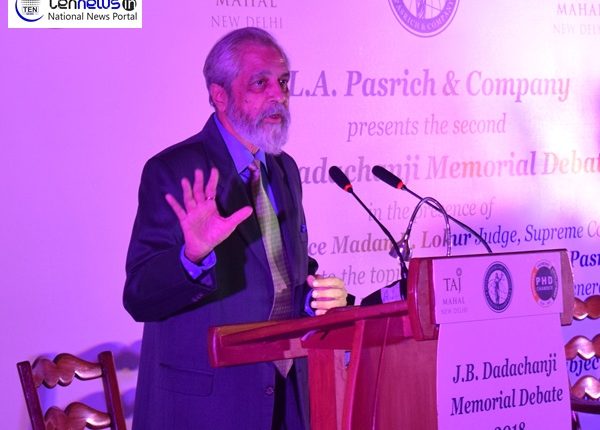
New Delhi : The Indian Judiciary System has in the recent times expanded its horizons thereby enveloping practical aspects to accommodate modern day Indian society.
While these amendments are primarily a concept at present, the consequences are yet to be deciphered until they become part of contemporary practice, thus giving rise to a debate on “Ideas like Constitutional Morality are subjective and widen the scope for judicial discretion, delay and uncertainty in the law”.
The debate was hosted by Amir Singh Pasrich, Chairman, Law & Justice Committee, PHDCCI & Managing Partner, I.L.A. Pasrich & Company and Satyajeet Krishnan, Area Director, North and General Manager Taj Mahal, New Delhi and presided over by the Guest of Honour, Hon’ble Justice Madan B. Lokur, Judge, Supreme Court of India.
Cases like the Sabarimala case or the NCT of Delhi case amongst many others have taken the judicial scene by storm this year and so they have been major deciding factors in the formulation of the current topic of debate.
The topic was brought about at the suggestion of one of India’s most acclaimed constitutional lawyers, the present Attorney General of India, K.K. Venugopal who also gave a keynote address on ’Is Constitutional Morality’ a further tool in the armoury of the Supreme Court for expanding judicial review?’ before the debate.
The topic of debate presented remarkable intricacies and was participated by eminent Senior Counsel including Tushar Mehta, Solicitor General of India, Salman Khurshid, Former Union Minister for External Affairs, Indira Jaising, Former Additional Solicitor General of India, Pinky Anand, Additional Solicitor General of India – Supreme Court and K. V. Viswanathan, Sr. Advocate and former Addl. Solicitor General of India.
This particular subject was designed to instill thought amongst one and all about the practicality and utility of the principles lately adopted by the Supreme Court of India. In an attempt to encompass various facets that tread on the face of modern Indian set up, are concepts like “Constitutional Morality” realistic or not?
Cases that will be dealt with under these principles will be subjected to prejudice rather than a clear-cut objective proceeding.

